2003 AWARD WINNERS
BROTHER RICHARD J. SAMYN, O.F.M '95
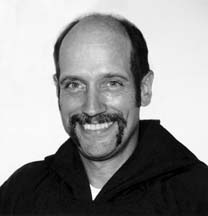 To Brother Rick Samyn, O.F.M. Capuchin and master gardener, growing food is about more than planting and harvesting. It is about teaching kids to eat better and sharing with them the human food relationship to Creation.
To Brother Rick Samyn, O.F.M. Capuchin and master gardener, growing food is about more than planting and harvesting. It is about teaching kids to eat better and sharing with them the human food relationship to Creation.
To that end, Samyn began the Earth Works Urban Farm Project to address the nutritional needs of Detroit’s poor. In partnership with the Gleaners Community Food Bank, and the Greening of Detroit, Samyn created a three-quarter acre farming project on Detroit’s east side. Earth Work’s goals are to create awareness of the need for sustainable food systems within our communities, and to promote healthier eating habits for youth. Much of the produce grown at Earth Works is distributed through the Women, Infant and Children (WIC) Project FRESH program in Detroit and Wayne County, and to the Capuchin Soup Kitchen.
DEBORAH HUNTER-HARVILL, ED.D '77 '84
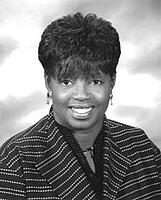 Deborah Hunter Harvill, Ed.D., said that it was at Marygrove College that she learned how to learn and how to give back to her community. So, it was only fitting that she dedicate her life to educating students who will one day lead and give back to their communities too.
Deborah Hunter Harvill, Ed.D., said that it was at Marygrove College that she learned how to learn and how to give back to her community. So, it was only fitting that she dedicate her life to educating students who will one day lead and give back to their communities too.
“I am committed to preparing students to be the best that they can be. As a Detroit Public School principal, I am passionate about moving students from low-achieving status to a higher level of achievement,” she says. As principal of Damon J. Keith Elementary School in Detroit, Hunter-Harvill is faced with the task of improving student achievement on the Michigan Educational Assessment Program Test (MEAP).
She approached the challenge with a positive, proactive attitude and implemented new programs to help children succeed. One activity she planned was an academic sleepover for grades 3-5, where the students practiced test-taking strategies and good study habits. In collaboration with the city of Detroit, she started an after-school partnership with the Mayor’s Time Empowerment Zone Initiative. The program focuses on reading and social etiquette. The Kiwanis Club supported the MEAP challenge by donating books to the school. Reading is a personal pastime of Hunter-Harvill’s and something that she encourages in all students. “Read, read, read!” she says. “Spend a lot of time at the library reading.”
CHIEF JUSTICE MAURA D. CORRIGAN '69
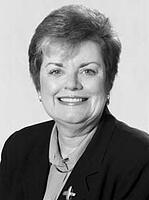 “Women can lead!” is the most important thing Chief Justice Maura Corrigan learned at Marygrove College. Then, Corrigan set out to prove that it was true. As a woman entering a field then largely dominated by men, Corrigan has earned the honor of being the first woman in several key positions. She was the first woman to serve as Chief Assistant United States Attorney and the first woman to serve as Chief Judge of the Michigan Court of Appeals.
“Women can lead!” is the most important thing Chief Justice Maura Corrigan learned at Marygrove College. Then, Corrigan set out to prove that it was true. As a woman entering a field then largely dominated by men, Corrigan has earned the honor of being the first woman in several key positions. She was the first woman to serve as Chief Assistant United States Attorney and the first woman to serve as Chief Judge of the Michigan Court of Appeals.
“Maura has optimism and faith,” according to Justice Robert P. Young. “Both are infectious. These characteristics allow her to accomplish that which the more pessimistic among us would not even attempt.”
Corrigan was elected to the Michigan Supreme Court in 1998 for an eight-year term. In January 2001, she was elected by her colleagues to a two-year term as Chief Justice, then in 2003, re-elected to serve in that position through 2004.
MARY MARGARET (MEG) CONNOLLY '67
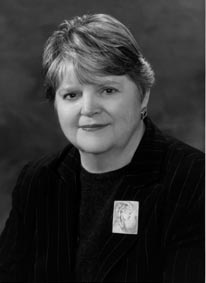 Meg Connolly was an example of compassion, competence and commitment even before she graduated from Marygrove in 1967.
Meg Connolly was an example of compassion, competence and commitment even before she graduated from Marygrove in 1967.
“She was outspoken, in the best sense of the word, about everything, but in particular about the myriad social inequities spawned by racial discrimination,” said Sharon Rodgers Simone ’67. “I admired her and was a little bit scared by her insights into social injustice. It would take me a few years to see what she already saw in the social structures we were all embedded in. In this regard, she was a leader and a role model for me and many other fellow Marygrovers. She still is.”
Nurtured by the testimony of the Civil Rights movement, Connolly recognized early in life that her passion was justice, and has tirelessly pursued it for those less privileged.
GABRIELLE BAKER BURTON '60
 According to Gabrielle Baker Burton’s five daughters, the Marygrove ideals of competence, compassion and commitment were not only demonstrated by their mother, but passed down to them as well. And not only do these ideals shape the choices Burton makes in her personal life, they are the theme of her novels and screenplays, too.
According to Gabrielle Baker Burton’s five daughters, the Marygrove ideals of competence, compassion and commitment were not only demonstrated by their mother, but passed down to them as well. And not only do these ideals shape the choices Burton makes in her personal life, they are the theme of her novels and screenplays, too.
“The greatest thing I learned at Marygrove was an awareness of the inequities in the world and the responsibility to do something about them, “Burton said. “Social justice has completely formed my values and choices.”
Burton’s sense of social responsibility and her closeness with her five daughters culminated in a movie collaboration. Burton’s screenplay, Manna from Heaven, was produced by her daughters’ company, Five Sisters Productions, and is still playing around the country a year after its release, a remarkable achievement for an independent movie. In it, the characters learn that the world may be a difficult and complicated place, but small acts can make a great change for the better.
ANN MOORE FEENEY '57
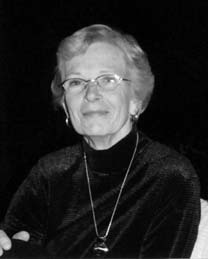 Commitment to family and community is the cornerstone of Ann Feeney’s life. Recognized as a tireless leader in the civic affairs of Chelsea, Michigan, and for having boundless compassion for the members of her community, she was honored as Chelsea’s first Citizen of the Year in 1994.
Commitment to family and community is the cornerstone of Ann Feeney’s life. Recognized as a tireless leader in the civic affairs of Chelsea, Michigan, and for having boundless compassion for the members of her community, she was honored as Chelsea’s first Citizen of the Year in 1994.
“Ann has always gone the extra mile in what she has done for the community,” said H. L. (Jack) Myers, village manager. “Our community has been enriched by the presence of Ann Feeney as an actively involved citizen and role model for all our community members.”
“Being chosen to be a part of the Chelsea Charter Commission this year was a privilege and an honor,” said Feeney. “But I would be stretching it if I said that anything was more important than sustaining a good marriage for 45 years and raising a family to be well-adjusted adults. The fact that I had the freedom to pursue goals outside of the family was an added bonus.”
MARY JOSEPH MAHER, IHM ’53
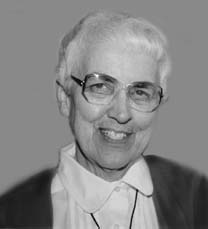 Sister Mary Joseph Maher always dreamed of living among and working with people who were poor and marginalized. And that dream came true.
Sister Mary Joseph Maher always dreamed of living among and working with people who were poor and marginalized. And that dream came true.
“I realize that I actually lived and worked in every place I ever desired to live and work: Recife, Brazil, and the inner cities of Detroit, Chicago and Gary, Indiana,” she said. A lifetime of missionary work allowed Maher to touch the lives of many people. But in addition to helping the poor, she inspired others to help, too.
“I believe that she is one of the most important influences in the congregation over the past 40 years,” said Sister Joan Mumaw, IHM. “She has helped to shape congregational response to global issues of justice and peace, both through education of sisters in critical thinking and social analysis, and through her life as a missionary.”
ALICE GEISLER RAFTARY '49 '67
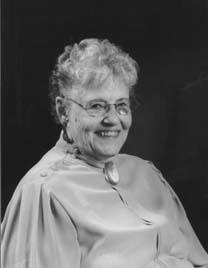 It would seem that raising eight children would keep Alice Raftary tied down. But it didn’t. Raftary continued to contribute her time and energy to many worthy causes simply by orchestrating a variety of volunteer activities for her children.
It would seem that raising eight children would keep Alice Raftary tied down. But it didn’t. Raftary continued to contribute her time and energy to many worthy causes simply by orchestrating a variety of volunteer activities for her children.
“We worked at Deaf-Blind Club meetings as interpreters, provided respite care for the parents of disabled children, delivered meals to the homebound elderly and drove visually impaired rehabilitation teachers to their clients’ homes,” says Mary Alice, Raftary’s daughter. “This early training has resulted in a group of adults who continue to volunteer and who provide similar experiences for their own children.”
Raftary is proud of this accomplishment. “It is said that you know what kind of job you’ve done raising your own children when you see how your grandchildren are being raised,” she said. “My husband, Ray, and I are blessed!”
